Supervisor Cancels Employee’s Medical Appointment Without Consent: Legal Implications Explored
In a concerning incident at a New Hampshire hospital, an administrative assistant discovered that her supervisor had unilaterally canceled and rescheduled her medical appointment without her knowledge or consent. This action followed the employee’s notification of a planned day off for health-related tests, which the supervisor opposed due to an unofficial policy against taking Mondays or Fridays off. Despite the employee’s clarification that such a policy was unenforceable, the supervisor proceeded to alter the appointment, leading to significant distress and a formal complaint to the U.S. Department of Health and Human Services’ Office for Civil Rights (OCR).
The incident raises critical questions about the boundaries of managerial authority, employee privacy rights, and the potential for violations under the Health Insurance Portability and Accountability Act (HIPAA). It also highlights the challenges employees face when internal reporting mechanisms fail to address grievances adequately.
US employers can face penalties if they violate the rules of the Health Insurance Portability and Accountability Act of 1996

One employee asked for advice online after his controlling boss canceled his doctor’s appointment without consulting him about it first
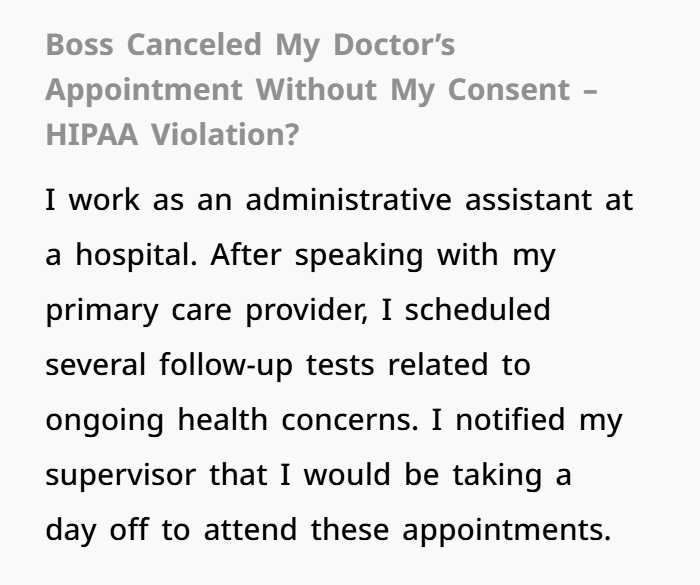
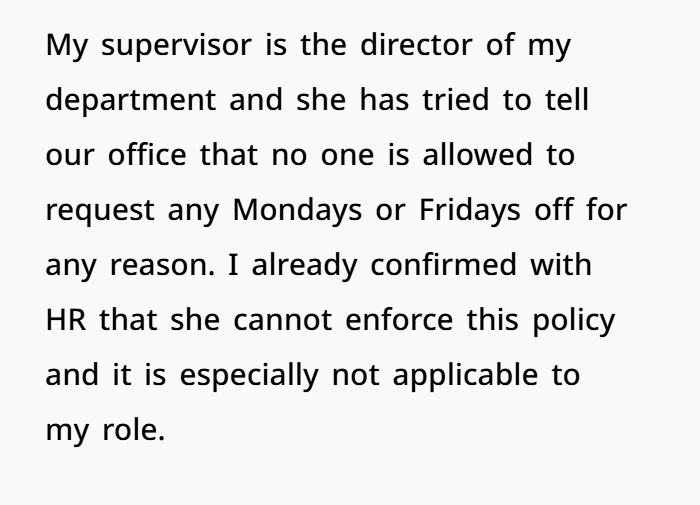
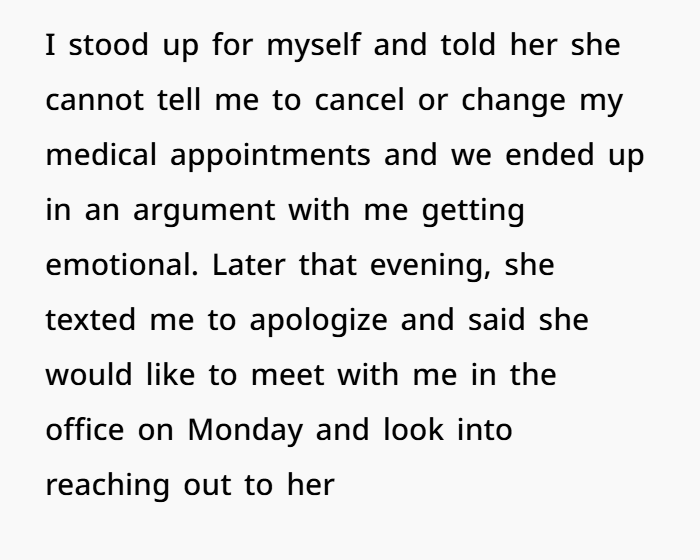
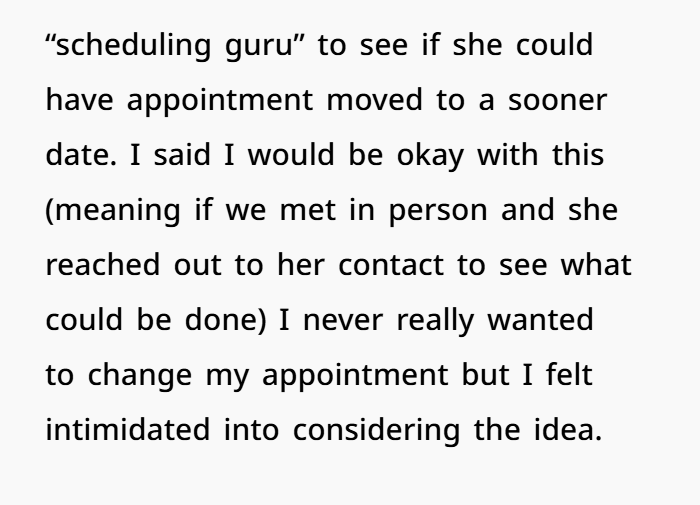

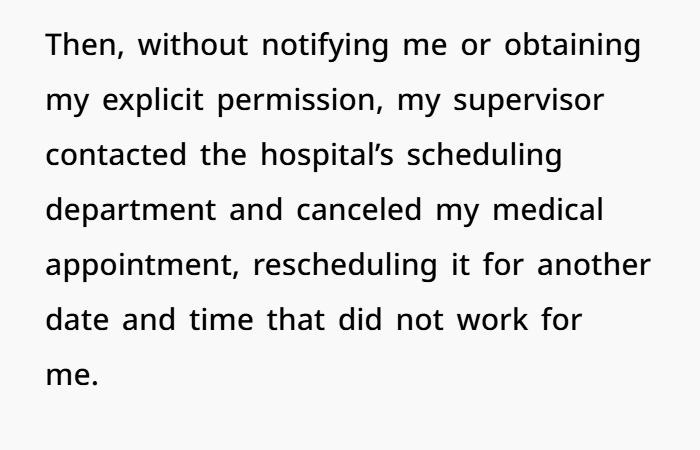
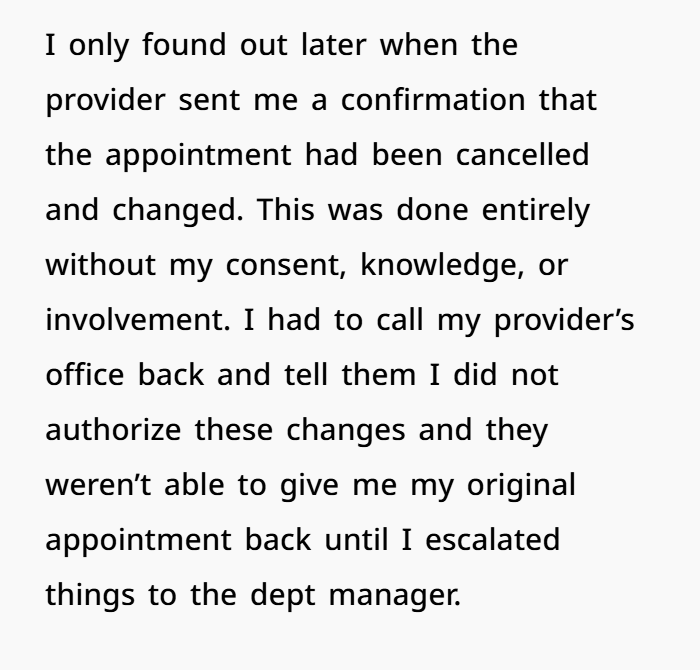
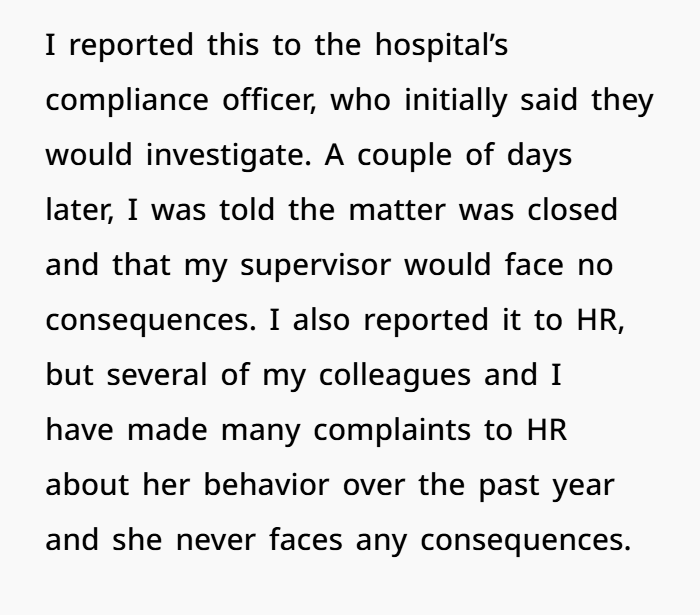
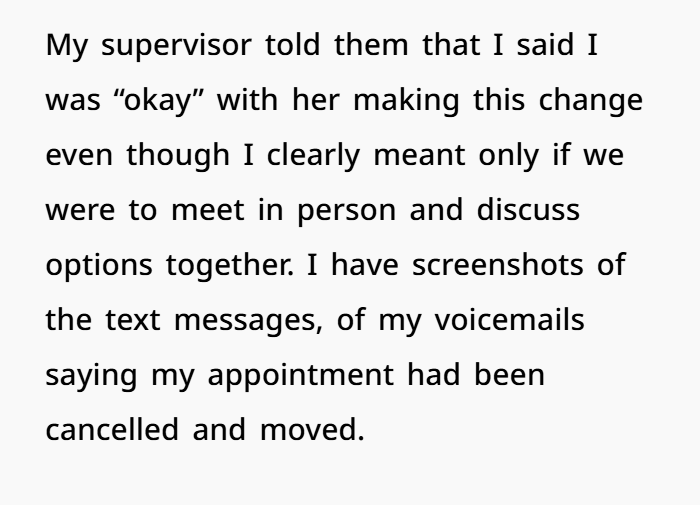
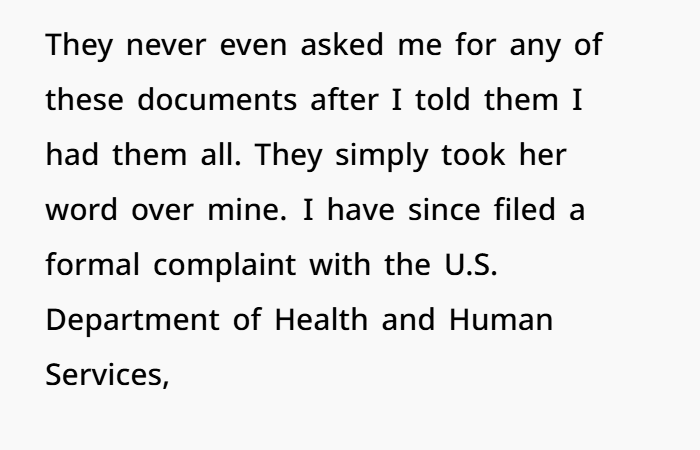
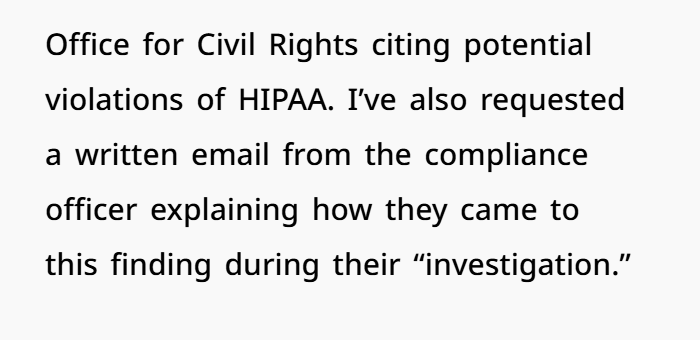

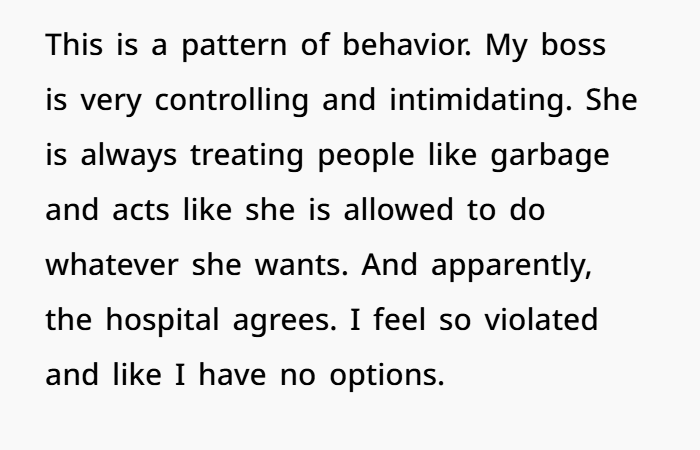
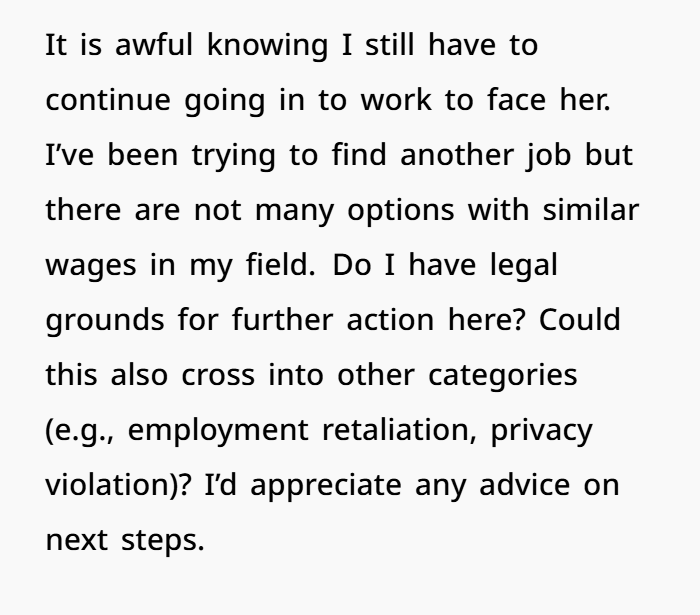
HIPAA Considerations
HIPAA establishes national standards to protect individuals’ medical records and other personal health information. Covered entities, including hospitals, must ensure the confidentiality, integrity, and availability of protected health information (PHI). Unauthorized access or disclosure of PHI can constitute a HIPAA violation. In this case, the supervisor’s action of canceling and rescheduling the employee’s medical appointment without consent may be viewed as an unauthorized interference with the employee’s healthcare arrangements. While the supervisor may not have directly accessed PHI, manipulating medical appointments without authorization could be construed as a breach of privacy expectations.
Employment Law and Retaliation
Under New Hampshire law, employers are prohibited from retaliating against employees for asserting their rights, including taking medical leave. Retaliation can include any adverse employment action taken as a result of an employee engaging in protected activity. In this scenario, the supervisor’s actions—opposing the employee’s day off for medical reasons and unilaterally altering her appointment—could be interpreted as retaliatory behavior, especially if they result in a hostile work environment or other negative employment consequences.The HR Specialist+3McLane Middleton+3DOL+3EEOC
Internal Reporting and Compliance

The employee reported the incident to the hospital’s compliance officer and HR department. However, the lack of action taken in response to her complaint underscores potential deficiencies in the organization’s internal reporting and compliance mechanisms. Employers are obligated to investigate complaints thoroughly and take appropriate corrective actions to prevent further violations. Failure to do so not only undermines employee trust but may also expose the organization to legal liability.
Filing a Complaint with the OCR
The employee’s decision to file a formal complaint with the OCR is a critical step in seeking redress. The OCR investigates complaints related to HIPAA violations and can impose penalties on entities found to be non-compliant. Employees have 180 days from the date of the alleged violation to file a complaint. The OCR’s investigation process includes reviewing the complaint, gathering evidence, and determining whether a violation occurred. If a violation is confirmed, the OCR may require corrective actions and impose fines.HHS.govPabau
Later, the author shared a few more details about the sensitive situation at work
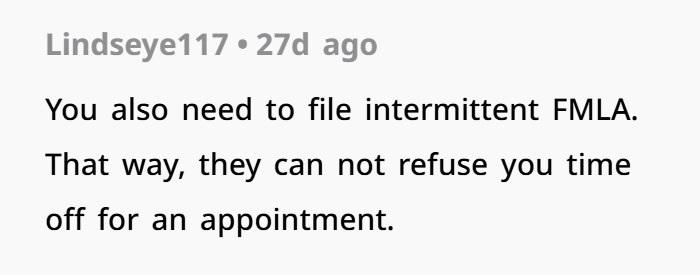
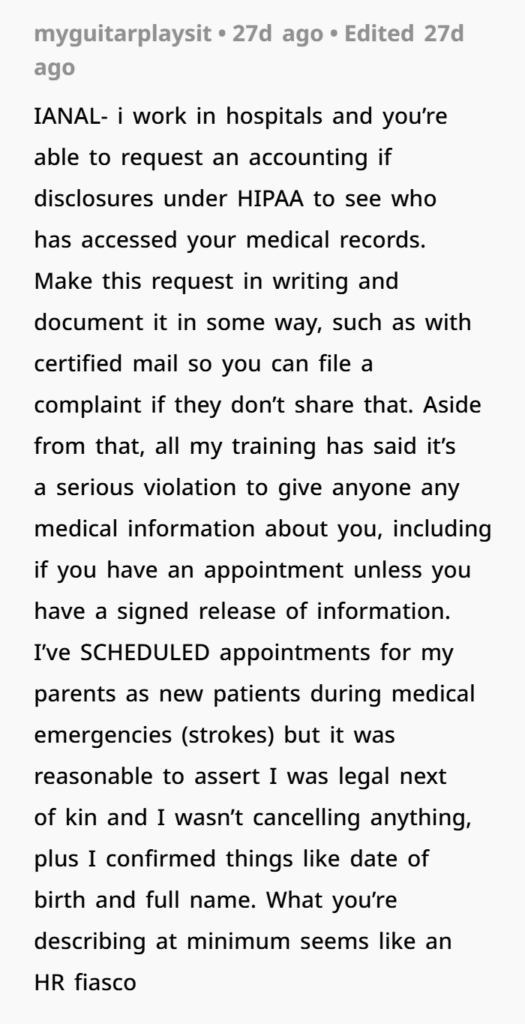

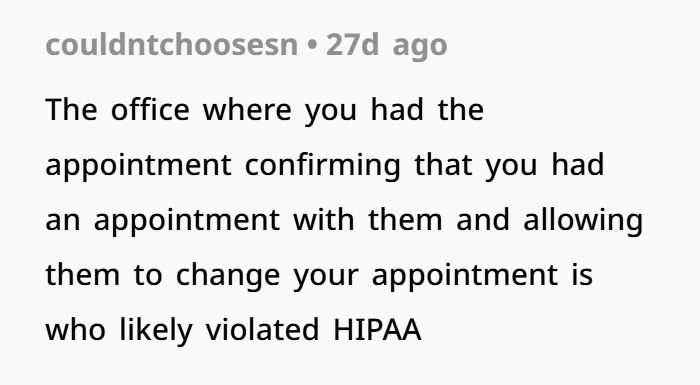
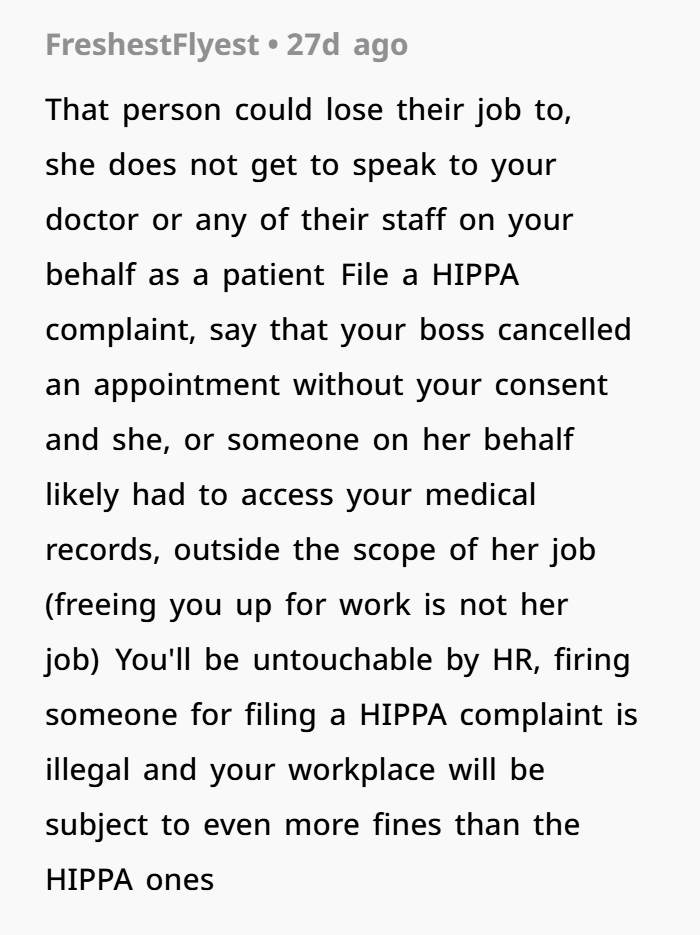
This case exemplifies the importance of respecting employee privacy and adhering to legal standards governing medical information and employment practices. Employers must ensure that their policies and actions comply with HIPAA and employment laws to maintain a lawful and respectful workplace. Employees who believe their rights have been violated should utilize internal reporting mechanisms and, if necessary, seek external remedies through appropriate regulatory bodies.

